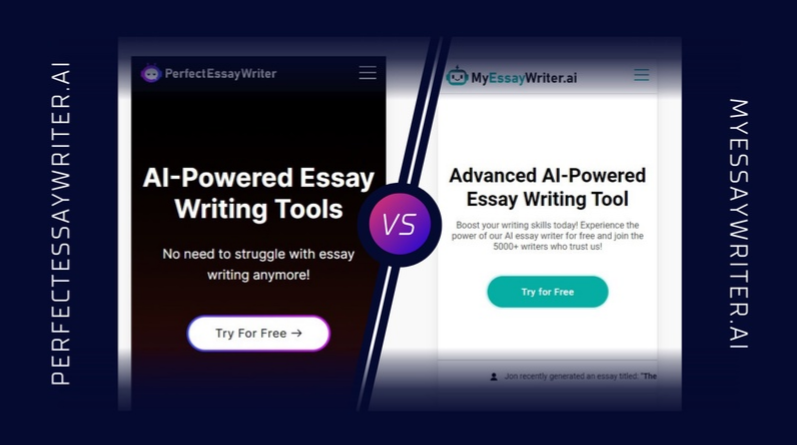In the ever-evolving world of content writing, a new wave of innovation has arrived: AI-powered tools. These revolutionary technologies are changing the game for writers by offering intelligent assistance and streamlining the writing process. From generating captivating headlines to crafting engaging social media posts, an AI content writing tool is indispensable aids for both seasoned writers and novices. With their ability to analyze data, predict trends, and adapt to individual writing styles, these tools are shaping the future of content creation, making it more efficient, effective, and exciting than ever before. Discover the limitless possibilities unleashed by AI-powered content writing tools and brace yourself for a whole new era of creativity and productivity.

The Definition and Importance of AI-Powered Content Writing Tools
Understanding AI content writing tools
AI content writing tools are software applications that utilize artificial intelligence algorithms to assist in the creation of written content. These tools employ various techniques such as natural language processing (NLP), machine learning, and deep learning to analyze data, generate ideas, and suggest improvements for content.
Why AI-powered tools are important for content writing
AI-powered content writing tools are becoming increasingly important in today’s digital age. They offer numerous benefits and advantages over traditional writing methods. These tools can help content writers streamline their workflow, increase productivity, and improve the quality of their work. By leveraging AI capabilities, content writers can save time and focus more on the creative aspects of their writing, while leaving the repetitive and mundane tasks to the AI tools.
The benefits of AI-powered content writing tools
AI-powered content writing tools offer several benefits that make them invaluable for content creators. Firstly, they can automate repetitive writing tasks such as grammar and spell-checking, which saves time and reduces errors. Additionally, these tools can enhance writing speed and efficiency by suggesting word choices, sentence structures, and improving overall readability. Moreover, AI-powered tools can optimize content for search engines, provide real-time feedback and suggestions, and improve content engagement and readability. Overall, these tools enable content writers to produce higher quality content in a more efficient manner.
Current State of AI-Powered Content Writing Tools
Overview of existing AI-powered content writing tools
There is a wide range of AI-powered content writing tools available in the market today. Some tools focus on specific writing tasks, such as grammar checking or generating topic ideas, while others provide a more comprehensive set of features. Examples of popular AI content writing tools include Grammarly, WordAi, Article Forge, and Frase. These tools utilize different AI technologies to analyze and generate content, providing content writers with valuable assistance and support throughout the writing process.
Advancements in natural language processing (NLP)
One of the key advancements in AI-powered content writing tools is the development of natural language processing (NLP) capabilities. NLP enables computers to understand and interpret human language, allowing AI tools to analyze and generate written content that is more coherent and contextually accurate. With improved NLP algorithms, AI tools can understand the nuances of language, detect grammar and spelling errors, and suggest improvements in a way that closely mimics human language understanding.
The limitations of current AI-powered content writing tools
While AI-powered content writing tools have come a long way, they still have some limitations. For instance, these tools heavily rely on pre-existing data and patterns, which means they may struggle with generating highly creative or original content. Additionally, AI tools may lack the ability to fully comprehend complex and nuanced topics. Furthermore, AI-generated content may sometimes lack the emotional depth and human touch that is characteristic of content produced by human writers. It is essential for content writers to understand the limitations of AI tools to ensure they are used effectively and in conjunction with human creativity.
Potential Impact and Implications on Content Writing Industry
The shift in content creation and consumption
The emergence of AI-powered content writing tools is transforming the content creation and consumption landscape. It has revolutionized how content is generated, making it faster and more efficient. Moreover, AI tools have enabled content creators to meet the growing demand for personalized and engaging content. As AI continues to advance, content creators need to adapt their strategies to leverage these tools and cater to the evolving preferences of their audience.
The role of AI in automating content generation
AI has the potential to automate various aspects of content generation, such as topic ideation, research, and even content writing itself. With AI tools, content creators can generate content at scale, reducing the time and effort required for manual research and writing. Automated content generation has the potential to revolutionize content creation processes and enable content writers to focus more on strategic thinking and creative aspects of their work.
Impact on content writers and their job prospects
The adoption of AI-powered content writing tools raises questions about the future role of content writers. While AI tools can automate certain tasks, they cannot replace human creativity and critical thinking. Content writers need to adapt and embrace these tools as valuable assistants rather than a threat to their profession. By understanding how to effectively incorporate AI tools into their workflow, content writers can enhance their productivity and deliver even better quality content.
AI and Human Collaboration in Content Writing
The synergy between AI and human writers
AI-powered content writing tools are designed to work hand in hand with human writers, creating a synergy that maximizes productivity and creativity. AI tools can assist content writers by providing real-time feedback, suggesting improvements, and automating repetitive tasks. Conversely, human writers bring their unique perspective, creativity, and ability to craft engaging narratives. The collaboration between AI and human writers allows for the best of both worlds, ensuring that the content produced is optimized and authentic.
How AI-powered tools enhance human creativity
Rather than stifling creativity, AI-powered tools actually enhance it by providing content writers with new perspectives and ideas. These tools can generate topic suggestions, identify relevant keywords, and provide insights into audience preferences. By leveraging AI, content writers can expand their creative boundaries, discover new angles, and produce content tailored to their audience’s needs.
AI as an assistant to content writers
AI-powered content writing tools should be viewed as valuable assistants to content writers rather than replacements. These tools can automate repetitive tasks, assist in research and planning, and offer real-time suggestions and improvements. With AI as their virtual assistant, content writers can accomplish more in less time, allowing them to focus on the strategic aspects of content creation.

Enhanced Writing Efficiency with AI-Powered Tools
Automating repetitive writing tasks
AI-powered content writing tools excel at automating repetitive tasks, thereby improving writing efficiency. These tools can automatically check grammar and spelling, suggest rephrasing for clarity, and even generate content outlines. By automating these routine tasks, content writers can devote more time and energy to the creative aspects of their writing.
Improving writing speed and efficiency
AI tools can significantly improve writing speed and efficiency. They can suggest word choices, sentence structures, and provide instant corrections, allowing content writers to write faster without sacrificing quality. By leveraging AI tools, content writers can meet tight deadlines and produce a higher volume of content.
Reducing errors and improving accuracy
AI-powered content writing tools excel at detecting and correcting grammar and spelling errors. They can also identify inconsistencies and improve overall accuracy. By relying on AI tools for error detection and correction, content writers can reduce the number of mistakes and produce polished and error-free content.
Improving Content Quality with AI-Powered Tools
Optimizing content for search engines
AI-powered content writing tools can optimize content for search engines by suggesting relevant keywords, improving meta tags, and providing SEO guidance. These tools leverage AI algorithms to analyze search patterns, identify trends, and recommend strategies to improve content visibility and ranking on search engine result pages. By utilizing these tools, content writers can ensure their content reaches a wider audience and achieves better organic visibility.
Enhancing readability and engagement
AI-powered tools can enhance the readability and engagement of content by suggesting improvements in sentence structure, tone, and overall writing style. These tools can identify complex sentences, redundant phrases, and provide suggestions to make the content more concise and engaging. By incorporating AI tools, content writers can produce content that captivates their readers and keeps them engaged.
Providing real-time feedback and suggestions
AI content writing tools offer real-time feedback and suggestions, allowing content writers to make instant improvements to their work. These tools can analyze content readability, identify potential issues, and offer suggestions to enhance the overall quality of the content. By utilizing these tools, content writers can receive immediate feedback and refine their work iteratively.

AI Tools for Content Research and Planning
Automated topic and keyword research
AI-powered content writing tools can automate the process of topic and keyword research. These tools analyze search patterns, identify popular topics, and suggest relevant keywords to incorporate into content. By leveraging AI tools for research, content writers can reduce the time and effort required for manual research and generate content that aligns with audience interests and search trends.
Analyzing user intent and optimizing content strategy
AI tools can analyze user intent by examining search queries, behaviors, and trends. With this knowledge, content writers can optimize their content strategy to align with user expectations and preferences. By understanding user intent, content writers can create content that provides the information and value users are seeking, improving the overall user experience.
Competitor analysis and content gap identification
AI-powered tools can aid in competitor analysis by analyzing content produced by competitors, identifying gaps, and suggesting strategies to differentiate oneself. By leveraging AI for competitor analysis, content writers can gain insights into industry trends, identify content gaps, and create unique and valuable content that sets them apart in the market.
Addressing Ethical Concerns in AI Content Writing
Ensuring transparency in AI-generated content
One of the ethical concerns surrounding AI content writing is the transparency of AI-generated content. It is crucial that content writers clearly disclose when AI tools are used in the content creation process. This transparency ensures that readers are aware of the involvement of AI in the writing process, maintaining trust and integrity.
Preventing plagiarism and maintaining originality
AI-powered content writing tools should be used responsibly to prevent plagiarism and maintain originality. While these tools can generate content ideas and suggestions, it is the responsibility of content writers to ensure the final output is unique and not plagiarized. Content writers should utilize AI tools as a source of inspiration while maintaining their creative integrity.
Balancing automation with ethical content creation
AI-powered content writing tools offer automation and efficiency benefits, but content writers must strike a balance between automation and ethical content creation. It is important to prioritize quality, accuracy, and authenticity in content creation while utilizing AI tools as assistants rather than relying solely on automated generation. By maintaining a balance, content writers can continue to produce valuable and ethical content.

Future Possibilities and Developments in AI Content Writing
Advanced content personalization using AI
The future of AI content writing holds great potential for advanced content personalization. AI tools can analyze user preferences, behaviors, and data to create tailored content that caters to individual users. This level of personalization can significantly enhance user experience and engagement, as well as drive conversions and customer loyalty.
Integration with virtual reality and augmented reality
In the future, AI-powered content writing tools may integrate with virtual reality (VR) and augmented reality (AR) technologies. This integration can enable immersive and interactive content experiences, where AI-generated content adapts and responds to user interactions in real-time. The combination of AI, VR, and AR has the potential to revolutionize content consumption and create entirely new forms of storytelling.
Predictive analytics for content performance optimization
With the advancements in AI, predictive analytics can play a significant role in optimizing content performance. AI-powered tools can analyze historical data, user behavior, and market trends to predict content performance, identify opportunities for improvement, and guide content strategy. By leveraging predictive analytics, content writers can align their efforts with data-driven insights to maximize the impact of their content.
Conclusion
The future of content writing is undeniably intertwined with AI-powered tools. As technology continues to develop, content writers must adapt and embrace the opportunities and challenges that AI brings. AI-powered content writing tools offer immense potential to enhance efficiency, improve content quality, and amplify creativity. By leveraging AI as a valuable assistant rather than a replacement, content writers can navigate the evolving landscape of content creation and continue to deliver compelling and valuable content experiences in an AI-powered world.







